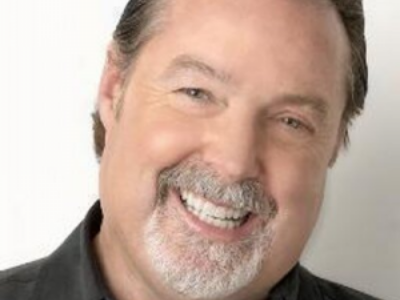Shaggy recounts his relief mission to Jamaica after Hurricane Melissa and shares how you can help
News > Top Stories

Audio By Carbonatix
5:59 PM on Thursday, November 6
By GABRIELA AOUN ANGUEIRA
As Hurricane Melissa intensified to a Category 5 storm pointing right at Jamaica, Shaggy knew he had to help, he just wasn't sure how. So he asked ChatGPT.
“I don’t know anything about relief and how to prepare for a storm," the Grammy-winning reggae musician said. “I went to ChatGPT and looked at what we would need in a storm and we just bought that. Luckily, that’s exactly what they needed.”
Orville Richard Burrell, known for pop-dancehall hits like “Boombastic" and “Angel,” was born and raised in Kingston until he moved to New York when he was 18.
He was in Miami when Melissa made landfall, but lives in Kingston. “That’s where the wife, kids and dogs are,” he said. “It’s where I call home," he said.
After the devastating October storm that killed at least 75 people across the northern Caribbean, Shaggy, 57, mobilized relief immediately for Jamaica, shuttling supplies from Miami and hand delivering them to the worst-hit areas.
He's now made it a mission to bring attention to his country's needs. “It's urgent to get the word out and make sure people don’t forget.”
The needs are dire, he said. “I think Jamaica’s forever changed by this.”
Shaggy spoke with The Associated Press on Wednesday from New York City. The interview has been edited for clarity and length.
When I heard that a Category 5 is coming, I’m saying to myself, ‘Whoa, this is going to be catastrophic.’ I just started preparing myself, hoping I can get in there and be effective.
I called my friend Dan Newlin. He has two planes and I said, ‘Let’s load these planes up and we’ll just shoot down there.’ As soon as the airport opened, we hit the ground.
It took us about six hours to get to a place that normally would be about two-and-a-half hours. There’s debris everywhere, there is sand and mud and some (roads) are still flooded, power poles are in the road.
I got there in the middle of the night, there was no electricity, it was pitch black so all I could give out was just water.
We drove six hours back to the city that night, and we put all the stuff into smaller vehicles ... things like tarpaulins, female sanitary pads, Pampers for kids, flashlights, batteries. (The next day we) took another route, which took us about four hours this time. That's the only way to do it.
Black River (St. Elizabeth parish) looked like they dropped an atomic bomb there with how damaged it was. We pulled up right before the bridge and they had just shut the whole town down because they said it was ground zero.
And we just pulled up right there and opened the truck and said, “We’re gonna give it out right here.” We thought we were going to get chaos because we didn’t have much security. But the truck pulled up and they just started to form a line by themselves. That’s how orderly it was.
No one could really prepare for that. No one has ever seen it. I feel for them.
The psychological effects it’s going to have on these children. A couple days ago they were probably playing, and now they’re standing in a queue just trying to find some food for their tummies.
We don’t just need to be rebuilding as far as food and shelter, but you’re also going to need some counseling.
If people can’t do cash, or (in) kind (donations), one thing they can do is keep it on their socials, keep it trending. We’ve got to keep the awareness up, because we’re going to need the aid. These places aren’t going to be fixed until probably 10 years before this is back and running the right way.
I'm working closely with Global Empowerment Mission. They have an Amazon link that you can just click on the items and Amazon will ship it straight to GEM and because they have boots on the ground they will get it straight into these neighborhoods.
Food for the Poor is also well established. It’s a Jamaican charity organization. They’ve been helping Haiti and places like those.
There’s also the Support Jamaica site that has been set up by the government.
We’re very resilient people. There’s a lot of love and a lot kindness. I’ve seen this firsthand.
Kingston now operates as an hub that can get food and supplies in and out. You’re seeing a lot of people, just regular Jamaicans, who are loading up their cars on the weekend and just going down there and that really helps.
You’re feeling that community, camaraderie, within the Jamaican society. I love that.
——-
Associated Press coverage of philanthropy and nonprofits receives support through the AP’s collaboration with The Conversation US, with funding from Lilly Endowment Inc. The AP is solely responsible for this content. For all of AP’s philanthropy coverage, visit https://apnews.com/hub/philanthropy.








